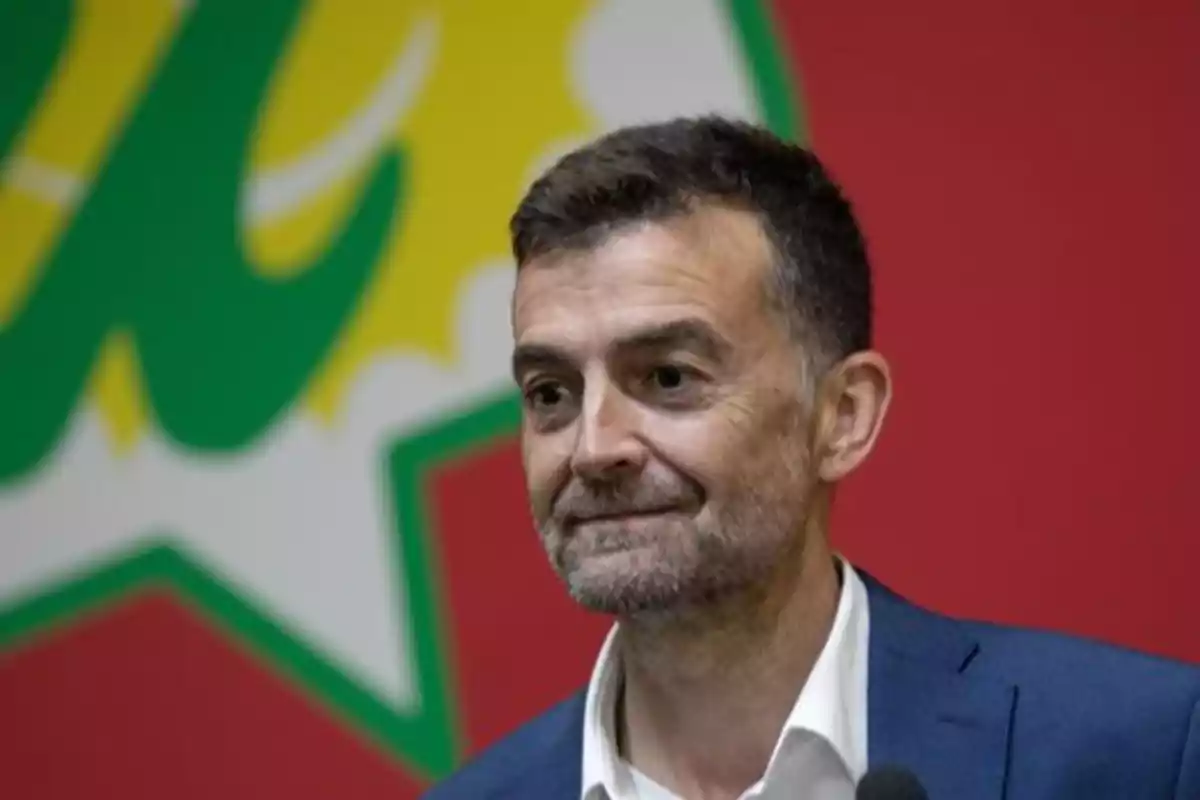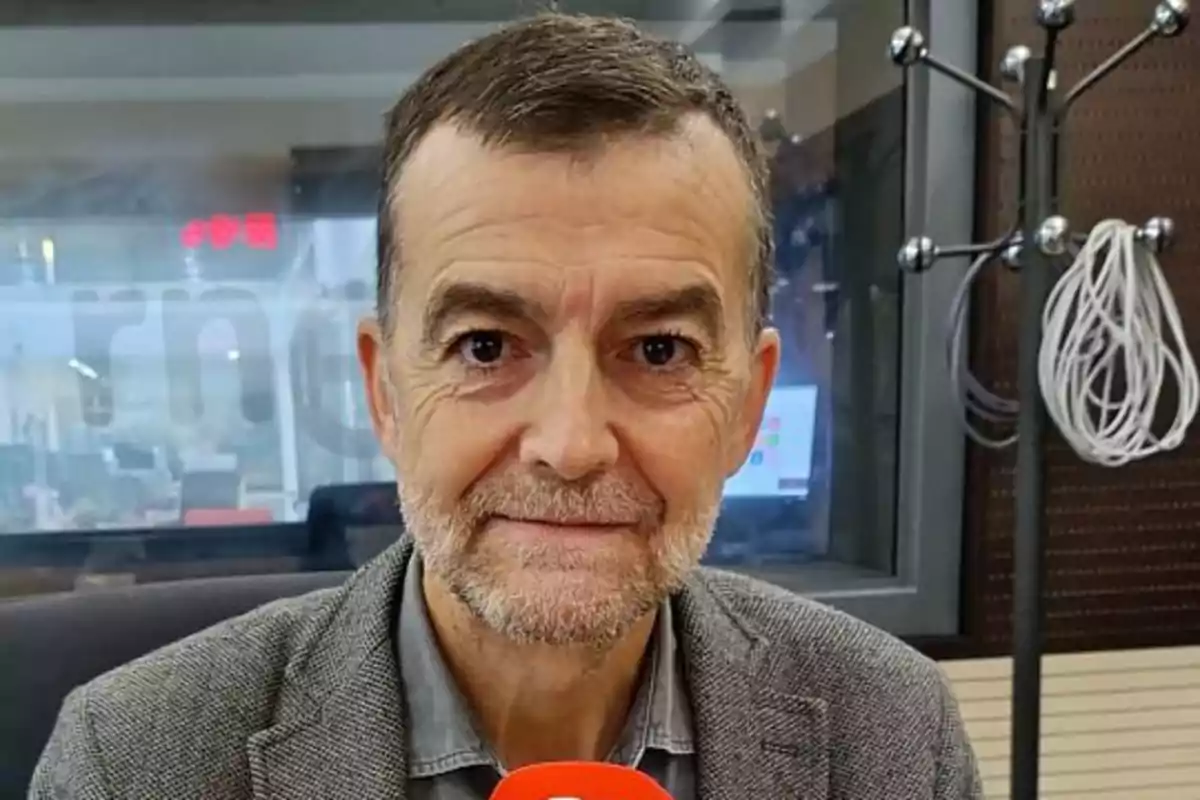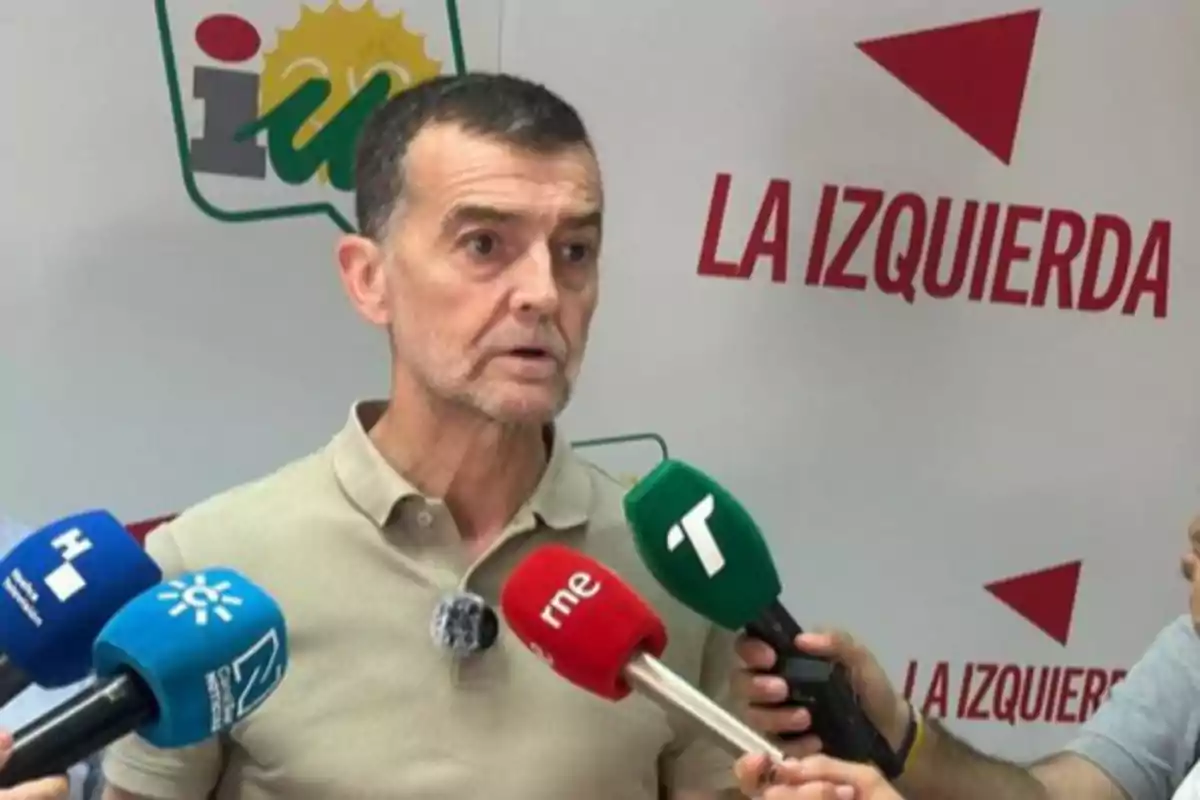
PSOE's corruption calls out Maíllo, who resists IU leaving the government
Despite the numerous threats, the party keeps the Ministry of Youth and Children under Sira Rego's leadership
The corruption shaking the Socialist Party has put the reformist discourse of Izquierda Unida (IU) General Coordinator, Antonio Maíllo, in a difficult position. Despite the pressures and turmoil this scandal has caused within the governing coalition, Maíllo has made it clear that IU is willing to keep the legislative term. In his own words, "Both parties that make up the Government must be clear that this legislative term is carried out with actions that are proportional to the seriousness of the matter and the moment."
In response to the crisis triggered by the imprisonment of Santos Cerdán, Maíllo says that the Government is not affected by the corruption case. The Andalusian leader points out two lines that, for him, make the difference: whether the Socialist Party, as such, was involved as a structure, as an organization, or whether the Government was involved. "I think these are the two scenarios that would shake up the entire situation," he states.
Despite the seriousness of the moment, IU's Federal Coordinator made a call for responsibility and unity. Maíllo emphasized that IU has already advanced much of its response to this situation and that it was the first group to present concrete proposals to fight corruption. "Several weeks ago, we presented 35 anti-corruption measures."
Among these measures is the need for an Anti-Corruption Law that not only targets the corrupt but also the corrupters, with real and tangible sanctions. Specifically, it proposes the exclusion of companies convicted of corruption and their executives from public contracting. As well as the full recovery of profits obtained through corrupt practices.
One of IU's most notable proposals is the creation of an Anti-Corruption Office to centralize the monitoring and prosecution of these crimes. The body should have autonomy and resources to prevent cases like the current one from recurring or becoming entrenched in the administration.
Podemos doesn't agree with IU. Criticizes IU for keeping the Ministry of Youth and Children under Sira Rego.
Trouble With Sumar And Podemos
IU is going through a period of uncertainty in its relationship with Podemos. The strategic paths of both forces seem increasingly divergent. Since Antonio Maíllo took over as IU's General Coordinator, the organization has sought to strengthen its political autonomy and its own identity. Especially after the disappointing results in the European elections, where IU was left out of Parliament for the first time in its history. Maíllo has been critical of Sumar's operations.

This has not improved relations with Podemos, which distrusts IU for its docility toward President Pedro Sánchez and Yolanda Díaz.
Maíllo: From Philologist To Political Leader
Antonio Maíllo Cañadas was born on November 2, 1966, in Lucena (Córdoba), into a family dedicated to the craft of animal harnesses. Although his parents wanted him to study law, Antonio chose classical philology, earning a degree in Classical Philology from the University of Seville.
During his university years, he was an active participant in the student movement, serving as faculty delegate and delegate of the Student Council. After passing the competitive exams in 1990 to become a secondary education teacher, he began teaching in Sanlúcar de Barrameda (Cádiz), where he also served as a councilor from 1991 to 1995. He later moved to Aracena (Huelva), where he was a teacher, school principal, and councilor until 2011. During this period, in addition to his teaching work, he was actively involved in local and regional politics, having been a member of the Communist Party of Spain (PCE) since 1996.
In 2009, he was appointed Head of the International Educational Programs Service of the Andalusian Regional Government's Department of Education, a position from which he promoted innovation and international collaboration projects.

His political career continued its rise when he was appointed in 2012 as General Director of Local Administration in the Andalusian Regional Government, where he defended resistance against centralist reforms that he considered harmful to public services and municipal autonomy.
In 2013, he was elected General Coordinator of IU's Andalusian branch. He was a member of Parliament and spokesperson for the group in the regional Parliament from 2015 until his resignation in 2019, when he decided to return to teaching after six years leading the Andalusian federation.
In 2024, after Alberto Garzón's departure, he was elected General Coordinator of Izquierda Unida at the federal level after defeating Sira Rego herself.
More posts: